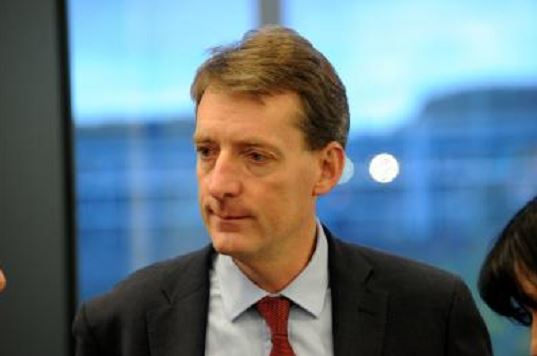
The oil and gas regulator has called on North Sea operators to listen to the supply chain if the industry wants to really improve collaboration and cut costs.
That was the message from Oil and Gas Authority chief executive Andy Samuel when he addressed delegates at Offshore Europe to present the Call to Action, Six Months On report and outline the Authority’s agenda to deliver a strong tripartite relationship between the industry, regulator and the UK Government.
Samuel also urged operators to be open to the good ideas being offered by service companies to reduce costs and improve efficiency in the sector.
He added: “Listen to the supply chain. The more I see of it, the more I appreciate it. I don’t think many of us realised it was a £35billion industry.
“When I meet members of the supply chain I am impressed by how much they want to be part of the solution. But I also hear from them how much they feel they are not being listened to. My message to operators is to listen – there are so many good solutions out there.”
“We cannot just keep talking about this.”
He said the need to reduce costs was an “existential crisis” for the industry.
“We really have got to look forward and get into the transformational stage quicker. Operational and cultural change is essential.”
Samuels said the OGA cannot provide all the solutions for the UK industry and leaders must take responsibilty to change the culture to deliver a sustainable future.
He called on the industry to help itself adding that the regulator and HM Treasury were there to listen and support.
Samuel added: “The OGA cannot be the solution to everything. I need leaders and the industry to really drive the change. It is leadership that creates the new culture,” Samuel told a packed lunchtime audience that included Sir Ian Wood and Statoil executive Helge Hove Haldorsen.
He said that industry had to show real evidence it was addressing spiralling costs and inefficiency, but at the same time ensure long-term survival by avoiding decisions that risked losing the people and skills needed when the industry enters the next upcycle.
“Regrettably, we still see over-zealous behaviour. We do see wonderful individual examples of collaboration but many people say to me that [the industry] hasn’t really changed and that it is difficult to implement change within their organisations. As leaders – do your bit.”
Samuel cited examples of improvements he wanted to see more of, such as BP’s saving of $32million by reviewing its inventory management and Nexen’s 30% improvement in oil productivity by increasing water injection in its wells.
He added that the Energy Bill was on track for Royal Assent in early 2016 and that the OGA would continue with its policy of aligned action and taking forward the findings in Wood Report.
“A lot of what Sir Ian laid out is what we will be seeing in the Energy Bill.”
Helen Dickinson, of HM Treasury, added that she had seen evidence of cost reduction initiatives.
“We are seeing the industry getting to grips with the problems,” she added.
Recommended for you
